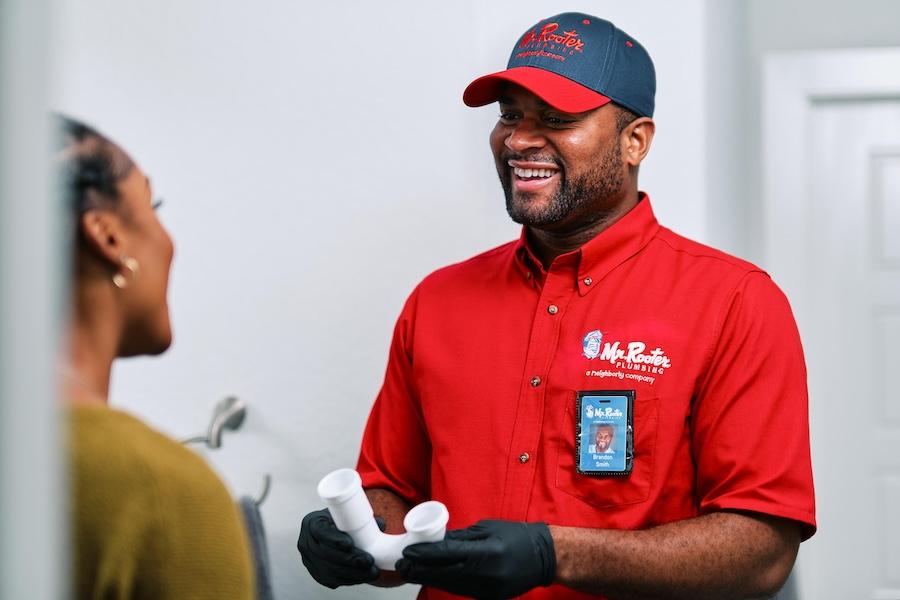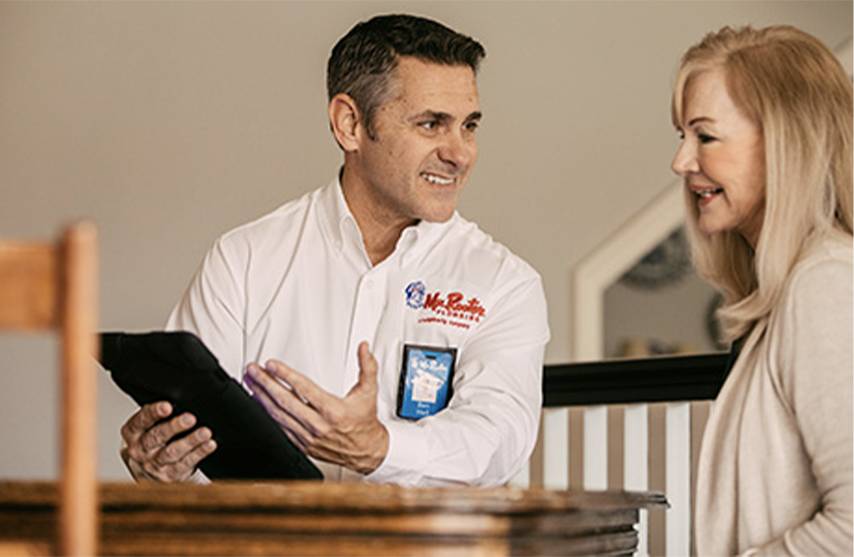August 16,2025 How to Spot Hidden Pipe Corrosion Before It Becomes a Disaster
A small leak hidden behind a wall can be a sign of corrosion working its way through your plumbing. If it’s ignored, corroded pipes can lead to expensive water damage and mold growth. Mr. Rooter Plumbing is ready to help you avoid a full-scale emergency. Early detection is possible if you know what to look for. Recognizing the warning signs gives you the chance to bring in a plumber or schedule a plumbing repair service before things escalate. Keep reading to learn how to spot the trouble early and protect your home.
Understanding What Corrosion Really Means for Your Pipes
Corrosion is a natural chemical reaction between metal and water that’s accelerated by oxygen, minerals, or chemicals in the supply. It slowly eats away at the inside of your pipes, thinning the walls until they weaken and fail. The process can be invisible at first, but the damage is happening long before a pipe bursts. Different metals corrode in different ways. Galvanized steel is prone to rust, while copper develops pitting or pinhole leaks. Newer materials aren’t immune either. Certain water chemistries can affect them. Once corrosion sets in, it will not reverse on its own. That’s why proactive maintenance, inspections, and pipe repairs are critical.
Subtle Signs You Might Be Missing
Spotting corrosion early requires paying attention to small shifts in your home’s plumbing behavior. These are the signs most homeowners overlook until the damage is severe:
- Discolored Water: If your tap water starts to look brown, yellow, or has a bluish-green tint, it could indicate corrosion. Rusty water usually points to iron or steel pipe deterioration, while blue-green is a sign of copper corrosion.
- Reduced Water Pressure: Corrosion buildup narrows the inside of the pipe, which restricts flow. If you’ve noticed a slow, gradual drop in pressure without any changes in your fixtures or appliances, corrosion may be the cause.
- Metallic Taste or Odor: A sudden change in water taste or smell can signal metal leaching from corroded pipes. These changes are most noticeable first thing in the morning or after the water has been sitting in the lines for several hours.
- Frequent Small Leaks: Even if you’ve patched a leak before, repeated small leaks in different spots are a sign that the pipe material is breaking down as a whole. At that point, a pipe repair may not be enough, and repiping might be necessary.
High-Risk Conditions That Speed Up Corrosion
Knowing the risk factors helps you anticipate potential trouble before it starts. Corrosion is influenced by the pipe material and your home’s water conditions.
- Water Chemistry Imbalance: High acidity or alkalinity can make corrosion worse. Excess minerals may also build up inside pipes and create abrasive surfaces that wear down the metal.
- Excess Oxygen in the Water: Oxygen is essential for life, but it’s not good for your pipes. High oxygen levels can increase rust formation in steel pipes and worsen pitting in copper.
- Electrochemical Reactions: When two dissimilar metals connect in your plumbing system without proper insulation, they can create a galvanic reaction that speeds up corrosion. This usually happens in older repairs where materials were mixed without using the right fittings.
- Stagnant Water: Pipes that aren’t used regularly, like those in guest bathrooms, can corrode faster because the water sits still and allows reactions to occur without fresh water flow to flush away minerals and gases.
Prevention, Inspection, and When to Consider Repiping
There is no piping material that’s immune to time, but corrosion can be managed with good maintenance habits and early intervention.
- Regular Professional Inspections: Having your plumbing system inspected every couple of years allows a professional to catch corrosion before it compromises the pipe. Plumbers use tools like video pipe inspection to see inside the lines without tearing into walls.
- Water Testing: A basic water quality test can reveal whether your pH, mineral content, or chlorine levels are outside the safe range for your pipe material. If there’s an imbalance, you can install treatment systems to protect your plumbing.
- Proactive Pipe Replacement: When corrosion is widespread, isolated repairs will only delay the inevitable. In these cases, repiping becomes the most reliable option. It’s a larger project, but it restores the integrity of your entire system and prevents recurring leaks.
- Upgrading Materials: If you have older galvanized steel pipes, consider replacing them with copper or PEX, which are less prone to certain types of corrosion. Even if the old pipes aren’t leaking yet, upgrading now can be more cost-effective than emergency replacements later.
- Protective Measures: Installing dielectric unions between dissimilar metals prevents galvanic corrosion. Adding pressure regulators can also reduce stress on the pipes and slow down the wear.
Do You Need a Professional Plumbing Repair Service?
If you suspect that you have corrosion in your home, call Mr. Rooter Plumbing and schedule an inspection. Our team has the experience, equipment, and training to spot problems early and recommend the most effective solution. Contact us now to protect your home from hidden pipe damage.

